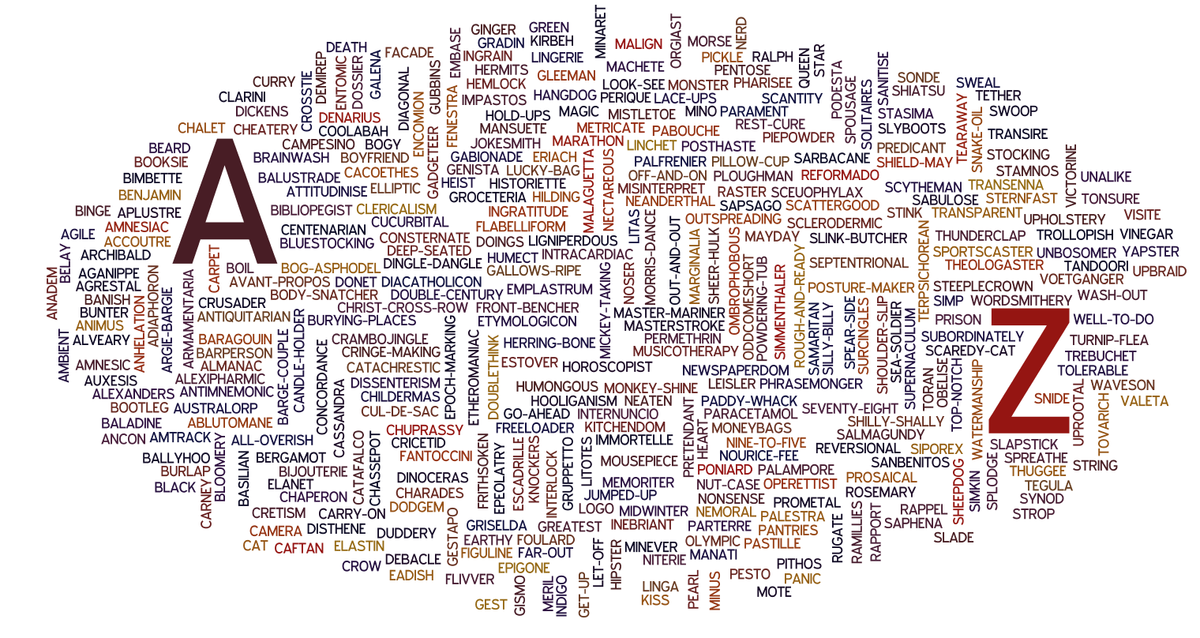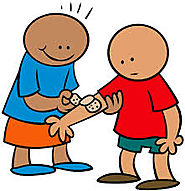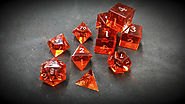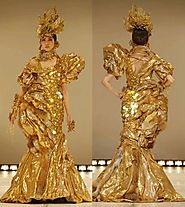-
About
- About Listly
- Community & Support
- Howto
- Chrome Extension
- Bookmarklet
- WordPress Plugin
- Listly Premium
- Privacy
- Terms
- DMCA Copyright
- © 2010-2024 Boomy Labs


 Lara Cowell
Lara Cowell
Listly by Lara Cowell
Words are power! Please add cool words that you've discovered to this glossary. Simply scroll down to the bottom header that says "Add to List" and select the "Text" button on the far left.
1. List the word. (Make sure it hasn't already been listed: no duplicates!) Next to it, in parentheses, note part(s) of speech
2. Include a relevant image to make the word memorable
3. In the description text box, indicate the pronunciation of the word and at least one dictionary definition. Attribute your source.
You can receive an extra credit point for every accurate, complete entry you submit. However, you must email Mrs. Cowell with a numbered listing of the entries you added; her emailed confirmation is your verification.

Pronunciation:
/ˈæmɪkəb(ə)l/
Etymology: < Latin amīcābil-is (a word of Roman law), < amīc-us friend, connected with amā-re to love. The earlier form was amiable adj. through Old French; compare appliable, which preceded applicable.(Show Less)
1. Friendly.
2. esp. Of mutual arrangements: Done in a friendly spirit, with mutual goodwill, or without quarrelling or employment of force; peaceable, harmonious. E.g., an amicable divorce is one where the two formerly married partners split on good terms, without fighting.
3. Of things: Kindly, benign, genial. Obs.
Pronunciation and definition courtesy of the Oxford English Dictionary Online.

Pronunciation: Brit. /əˌpɒθɪˈəʊsɪs/ , U.S. /əˌpɑθiˈoʊsəs/
Etymology: < post-classical Latin apotheosis deification (late 2nd cent. in Tertullian), ascent to heaven of a saint (a1508) < Hellenistic Greek ἀποθέωσις deification < ἀποθεοῦν to deify ( < ancient Greek ἀπο- apo- prefix + θεοῦν to make a god of < θεός god: see theo- comb. form) + -σις -sis suffix.
All definitions courtesy of the Oxford English Dictionary Online.

/ɪnkənˈsəʊləb(ə)l/
1. cannot be alleviated or comforted
Oxford American Dictionary

/ˈjuːfɪmɪz(ə)m/
1. a word or phrase substituted for something for something thats usually embarrassing or unpleasant
2. making something bad sound good
Oxford English Dictionary

Pronunciation
/əˈnæθɪmə/
Etymology: < Latin anathema an excommunicated person, also the curse of excommunication, < Greek ἀνάθεμα , originally ‘a thing devoted,’ but in later usage ‘a thing devoted to evil, an accursed thing’ (see Rom. ix. 3). Originally a variant of ἀνάθημα an offering, a thing set up (to the gods), n. of product < ἀνατιθέναι to set up, < ἀνά up + τιθέναι (stem θε- ) to place. Compare anathem n., and anatheme n.(Show Less)
Source: Oxford English Dictionary
http://www.oed.com/view/Entry/7144?redirectedFrom=anathema&
Photo Credit: http://www.clipartpal.com/_thumbs/pd/holiday/halloween/witch_using_wand.png

Pronunciation
/ɑːˈkeɪn/
Etymology: < Latin arcānus, < arcēre to shut up, arca chest; compare French arcane.
Source: Oxford English Dictionary
http://www.oed.com/view/Entry/10258?redirectedFrom=arcane#eid
Photo Credit: https://img1.etsystatic.com/049/0/9952782/il_fullxfull.709715689_s73g.jpg

Pronunciation
\ˈflā-grənt also ˈfla-\
1.conspicuously offensive ; especially : so obviously inconsistent with what is right or proper as to appear to be a flouting of law or morality
Source: Merriam-Webster Dictionary
http://www.merriam-webster.com/dictionary/flagrant
Photo Credit: http://media.salon.com/2013/08/shutterstock_96583111.jpg

Pronunciation:
bəˈnīn/
Etymology: Early 14c., from Old French benigne (12c., "kind, benign, merciful, gracious;" Modern French bénin, fem. bénigne), from Latin benignus "kindly, kindhearted, friendly, generous," literally "well born," from bene "well".
Definition:
1. Gentle; kindly:
Her face was calm and benign
2. (Of a climate or environment) mild and favorable.
Jersey's benign climate and free-draining sandy soil provide the ideal environment for over 80 species of lavender.
3.Not harmful to the environment:
An ozone-benign refrigerant
4.Medicine (Of a disease) not harmful in effect: in particular, (of a tumor) not malignant.
In actual fact, for the vast majority of cases, the childhood infectious diseases are benign and self-limiting.
OXFORD ENGLISH DICTIONARIES

Pronunciation: /ˌserənˈdipədəs/
Etymology: 1754, coined by Horace Walpole (1717-92) in a letter to Horace Mann (dated Jan. 28); he said he formed it from the Persian fairy tale "The Three Princes of Serendip," whose heroes "were always making discoveries, by accidents and sagacity, of things they were not in quest of." The name is from Serendip, an old name for Ceylon (modern Sri Lanka), from Arabic Sarandib, from Sanskrit Simhaladvipa "Dwelling-Place-of-Lions Island."
Definition:
Occurring or discovered by chance in a happy or beneficial way:
Example:
OXFORD ENGLISH DICTIONARIES

Pronunciation
/ɡɜːd/
Etymology: Of obscure origin.
Source: Oxford English Dictionary
http://www.oed.com/view/Entry/78457?result=4&rskey=mmojov&
Photo Credit: http://images.clipartpanda.com/hitting-clipart-nTX8oXnyc.gif

Pronunciation
/kɪlt/
Etymology: apparently of Scandinavian origin: compare Danish kilte (also kilte op) to tuck up, Swedish (dialect) kilta to swathe, swaddle; Old Norse had kilting, kjalta skirt, lap.
Source: Oxford English Dictionary
http://www.oed.com/view/Entry/103412?result=2&rskey=h62tzv&
Photo: http://cdn4.mcspr.net/media/sitegraphics/cms-kilt-pleating-box-pleats.jpg.pagespeed.ce.-2XY7jOYOg.jpg

Pronunciation
/ˈnɛksəs/
Etymology: < classical Latin nexus (plural nexūs ) the action of binding, a bond, tie, a type of legal obligation, a combination, connected group < nectere to bind, connect (see net n.1) + -tus, suffix forming verbal nouns.
Source: Oxford Online Dictionary
http://www.oed.com/view/Entry/126677?redirectedFrom=Nexus#eid
Photo Credit: https://d30y9cdsu7xlg0.cloudfront.net/png/195982-200.png

Pronunciation:
/ˈviːɪməntlɪ/
Etymology: < vehement adj.
Source: Oxford English Dictionary
http://www.oed.com/view/Entry/221901?redirectedFrom=Vehemently#eid
Photo Credit: http://listcrux.com/wp-content/uploads/2013/12/The-intense-feeling-love-may-path-way-to-another-equally-intense-feeling-hatred.jpeg

Pronunciation
/suˈpərfləwəs/
Etymology: < classical Latin superfluus superflue adj. + -ous suffix. Compare earlier superflue adj. and the Romance forms cited at that entry; compare also superfluent adj. With the use as noun, compare earlier superflue n., superfluity n.
Compare the following earlier occurrence of the Latin adjective in a Middle English context, in the specific mathematical sense ‘(of a number) that is smaller than the sum of its factors’:
Source: Oxford English Dictionary
http://www.oed.com/view/Entry/194328?redirectedFrom=superfluous#eid
Photo Credit: https://img0.etsystatic.com/000/0/5157460/il_570xN.254942972.jpg

Pronunciation:
/ˈvɛnərəb(ə)l/
Etymology: < Old French venerable (modern French vénérable, = Spanish venerable, Portuguese veneravel, Italian venerabile) or < Latin venerābilis, < venerārī to venerate
Source: Oxford English Dictionary
http://www.oed.com/view/Entry/222102?redirectedFrom=venerable#eid
Photo Credit: http://www.catholic-ew.org.uk/var/storage/images/catholic-news/catholic-news-media-library/images/venerable-english-college/vec-papal-audience/230716-1-eng-GB/VEC-Papal-Audience.jpg

Pronunciation: /vəˈmɪljən/
Etymology: < Anglo-Norman and Old French vermeillon, vermillon, vermilo(u)n, etc. (modern French vermillon , = Provençal vermeillon , vermillon , vermelho , Catalan bermello , Spanish bermellon , bermillon , vermellon , Portuguese vermelhaõ , Italian vermiglione ), < vermeil vermeil adj. Hence also Dutch vermiljoen, Danish and Swedish vermilion.
With the forms vermeon, vermion compare medieval Latin vermeum, variant of vermellum, etc. With the form vermiglion compare Italian vermiglione.
Definition: Cinnabar or red crystalline mercuric sulphide, esp. in later use that obtained artificially, much valued on account of its brilliant scarlet colour, and largely used as a pigment or in the manufacture of red sealing-wax; also, any red earth resembling this and similarly used as a pigment.
Pronunciation and definition courtesy of the Oxford English Dictionary Online.

Pronunciation: /tɪˈneɪʃəs/
Etymology: < Latin tenāx, tenāci- holding fast ( < tenēre to hold) + -ous suffix: see -acious suffix
Definition: Holding together, cohesive; tough; not easily pulled in pieces or broken.
Pronunciation and definition courtesy of the Oxford English Dictionary Online.
Picture from: http://media.tumblr.com/70a82c6d31025e0bcb990c304ad963ba/tumblr_inline_mpq8xec8mc1qz4rgp.jpg

Pronunciation: Brit. /ˈəːsats/ , /ˈɛːsats/ , /ˈəːzats/ , /ˈɛːzats/ , U.S. ersatz#_us_1_rr.mp3 /ˈɛrˌsɑts/ , /ˈɛrˌzæts/ , ersatz#_us_2_rr.mp3 /ˈɛrˌzɑts/
Etymology: German, = compensation, replacement.
Thesaurus »
A substitute or imitation (usually, an inferior article instead of the real thing).
Hawaii's warm tropical climate makes actual fireplaces impractical, so during the holidays, winter-wishful locals often resort to creating ersatz construction-paper hearths, complete with faux blazing Yule fires.
Definition courtesy Oxford English Dictionary Online

Pronunciation:
/ˈsaNGɡwən/
Etymology: Meaning "cheerful, hopeful, confident" first attested c. 1500, because these qualities were thought in medieval physiology to spring from an excess of blood as one of the four humors. Also in Middle English as a noun, "type of red cloth" (early 14c.).
1. Optimistic or positive, especially in an apparently bad or difficult situation:
2. (In medieval science and medicine) of or having the constitution associated with the predominance of blood among the bodily humors, supposedly marked by a ruddy complexion and an optimistic disposition.
3. A blood-red color.
Source Oxford English Dictionary Online.

Pronunciation:
/kəˈkäfənē/
Etymology: Mid 17th century: from French cacophonie, from Greek kakophōnia, from kakophōnos 'ill-sounding', from kakos 'bad' + phōnē 'sound'.
Source Oxford English Dictionary Online

Pronunciation:
/iˈbo͝olyənt/ /iˈbəlyənt/
Etymology: Late 16th century (in the sense 'boiling'): from Latin ebullient- 'boiling up', from the verb ebullire, from e- (variant of ex-) 'out' + bullire 'to boil'.
Source: Oxford English Dictionary Online.

Pronunciation:
/ˈfedid/
Etymology: < Late Middle English: from Latin fetidus (often erroneously spelled foetidus), from fetere 'to stink'. Compare with fetor.
Source: Oxford English Dictionary Online.

Pronunciation:
/ɡranˈdiləkwənt/
Etymology: Late 16th century: from Latin grandiloquus, literally 'grand-speaking', from grandis 'grand' + loqui 'speak'. The ending was altered in English by association with eloquent.
Source Oxford English Dictionary Online

Pronunciation:
/imˈpinj/
Etymology: Mid 16th century: from Latin impingere 'drive something in or at', from in- 'into' + pangere 'fix, drive'. The word originally meant 'thrust at forcibly', then 'come into forcible contact'; hence 'encroach on' (mid 18th century).

Pronunciation:
/ˈlaNGɡwəd/
Etymology: Late 16th century (sense 2): from French languide or Latin languidus, from languere
Source Oxford English Dictionary Online.
